Many Poles do not understand Poland's location in Europe and EU policy, decision-making mechanisms and the exercise of power there. Therefore, it is good to recall a few basic things before the upcoming elections to the European Parliament.
What does not understand Poland's situation are those – or they simply do not care about Poland – who think that there is no problem at all, that the European Union always acts in accordance with our interests and values, and that it is enough to implement its regulations and directives. However, this is a claim that is becoming less and less credible. EU institutions are not infallible. They should not be demonized, but it is not the case that everyone benefits or that these benefits are equal. Moreover, sometimes these decisions can be harmful, very harmful. It is also obvious that the centralization of the EU means the reduction of Poland's sovereignty, and the creation of the "Europe" state would be the end of the independent Polish state. But there is a second illusion: the belief, widespread on the right, that Poland could easily win in an economic and political conflict with the other twenty-six countries, including Germany and France. This is a heroics without any coverage. Just look at how Great Britain or Switzerland fared in negotiations with the EU, either to leave it – in the case of Great Britain – or to retain a significant part of their sovereignty, as in the case of Switzerland. Great Britain miraculously freed itself from the noose placed around its neck after the "Brexit" referendum. It was freed thanks to voters giving a decisive victory to Boris Johnson. If it weren't for this, the EU would have tormented this country for a long time and forced it to make concessions. It was similar with Switzerland. I had the opportunity to closely observe the EU's negotiations with this country. In this case too, Switzerland was in the position of the weaker and the suppliant. Poland, as we know, cannot compare with either small, but incomparably more prosperous Switzerland, or with Great Britain, which has the second largest economy in Europe, the strongest army, influence in the world, etc.
The Union is a power because access to the large and rich European market depends on it. Even China and the Americans care about this. For weaker countries, the EU is a superpower thanks to its funds and financial guarantees. The Union is also strong in its political attractiveness – in many Central European countries, people still hope for an improvement in the situation in their country, for a decent life, for freedom, for democracy, with the Union. In Ukraine, Georgia, and the Balkans, most people perceive the world dichotomously – either Russia or the "European Soyuz". Russian aggression has further intensified these trends. If we are faced with such an alternative, the answer of what to choose is obvious. There are also many people in Poland for whom the EU is still a promise of a better future and a guarantor of a stable present, a shield against Russia. Tusk skillfully uses this to justify his policy of submission to Berlin, and therefore also to Brussels. Taking on the EU is therefore an extremely difficult matter. Poles must realize that it is very difficult for Poland to push through its opinions, present its interests and demands in the institutional political context that we have in Europe today. The pompous speeches of right-wing politicians and the clientelism of the "Tusk supporters" are at best smokescreens hiding this situation. Does this mean that we should give up the fight for Poland's proper place as a sovereign state in Europe? Of course not. This fight is our duty. But to do it effectively, you need to realistically assess the situation and choose the right strategy. The weak point of the EU political order in Europe are elections, because despite all marketing techniques, it is never entirely clear how the people will behave. What are the upcoming European Parliament elections about? As always in every election – about power, about maintaining the current balance of power. But it's not about power in individual countries, but about power in Europe.
Of course, it is not the case that whoever wins the EP elections "takes power" in Europe. There is no single ruler of Europe – and there is no single government of Europe. This does not mean that political power has disappeared, that it has been replaced by the administration of things or the arrangements of equal partners. It is simply divided into a few centers. Brussels is – along with Berlin and Paris – one of the three most important. And you cannot rule in Europe without having influence in Brussels. Every German Chancellor and every French President understands this. A widespread and to some extent justified belief among Poles is that the EU is ruled by Germany. However, we rarely ask ourselves how this is possible, how they rule and why. Well, they would not rule if it were not for the more or less voluntary consent of other countries. Germany rules Europe because others let them. And they allow it because, in total, it brings them more benefits than losses – at least for their elites. To govern, Germany must use EU institutions effectively. This requires both control of what is happening in the EP and a majority in the Council of the EU. They must also share power with France, and to a lesser extent with other partners. The Franco-German alliance, full of hidden rivalries and tensions, is the keystone of the power system in the EU and, indirectly, in the whole of Europe. Anyone who wanted to change this system would have to dismantle it. It should be added that just as there is no EU government, there is also no European parliament. The EU institution called the European Parliament is not – and should not be – a parliament in the classical sense. It is, of course, more than just a parliamentary assembly of an international organization. Unlike parliaments in the Member States, the EP does not have legislative initiative and, moreover, is only a co-legislator. By itself, the EP cannot enact EU law. It must wait until the legislative draft is received from the European Commission and must reach an agreement with the Council of the EU regarding its final shape. And the Council is usually the stronger party in negotiations. And the composition of the Council is determined by elections in the member states, not "European" elections. The Council of the EU has a qualified majority – 55% of countries representing 65% of the population. Only a few areas still require unanimity (these areas are taxation; social security/protection; accession of new countries to the EU; common foreign and security policy, including the common security and defense policy; police cooperation). Often, in the past, when we learned from the Polish media that the Polish government had vetoed some legislative act in the Council of the EU, it was usually only about voting against it, not stopping this act. Despite the alleged "veto", it was still binding on us. The EU has mastered methods of circumventing the principle of unanimity – by changing the legal basis of a regulation or directive, by creative interpretation of the law and by various types of pressure and incentives. Every EU country is afraid of isolation and loneliness. This in itself can be a sign of failure. If it is known in advance that it will not support a legislative project in the Council of the EU, it is deprived of the opportunity to influence its final shape and to take its own interests into account, at least partially. If you do not have a blocking minority or majority in the Council of the EU and the European Parliament, the only effective instrument to block unfavorable decisions is a veto in strategic matters at the Council of the EU. But even in this case, it is possible to bypass the states' opposition by creating a group of states that "think the same", whose decisions the dissident states must take into account anyway.
I believe that in several situations in recent years we could have played much harder – e.g. in the matter of the Green Deal and the so-called conditionality mechanism. The German Presidency should also not have been helped in establishing this mechanism and adopting the budget. We certainly should not have made elementary mistakes, such as announcing negotiation successes at the beginning of the entire process.
The election of the President of the European Commission and its composition is not made by the EP, but only approved. It is up to the states to decide who will become the president – this was the case with the election of Ursula von der Leyen, whose candidacy was put forward by President Macron, who did not agree that Manfred Weber, the "Spitzenkandidat" of the European People's Party and head of the EPP faction in the European Parliament, should become the president of the European Commission. The EPP won the elections, but the countries did not intend to follow the rule invented by the EP that the leading candidate of the winning party family should become the chairman of the Commission. Poland, above all, wanted to block Frans Timmermans, who had promoted himself by fighting for the "rule of law" in Poland.
However, European Parliament is of growing importance. EC projects are developed and amended by the EP. Therefore, the EC must take the EP into account and must have solid support in the EP. It can't hang in the air. The European Commission must always ensure a sufficient majority both in the Council, among Member States and among MEPs. In the past term, its basis in the EP were the factions that call themselves "pro-European" - EPP, S&D (socialists), Renew (Macronists) and – in addition – the Greens. Outside this system, the ECR, "Identity and Democracy" and the Left remained. In fact, for almost the entire term, the green-liberal-left trend dominated in Brussels politics. The "Greens", a small faction, morally blackmailed others; it also had a clear intellectual advantage over other "pro-European" groups. However, this caused increasing irritation of EPP MPs, growing as social protests grew in connection with the costs of the green transformation, which were already felt in wealthy countries.
Therefore, there was a need to build a new "pro-European majority", more to the right. But this raises the question of where to set up the "cordon sanitaire" that has always been used to separate ourselves from the far right. The main candidate to be co-opted into the new majority is ECR, also because the Prime Minister of Italy, a country to be reckoned with in the Council, is Giorgia Meloni, president of the ECR Party.
In the past term, there was often cooperation between the EPP and ECR factions – naturally not on fundamental issues, such as EU centralization, the rule of law and the Green Deal, but when it came to weakening the left's ambitions in climate, energy and social policy. Now, however, EPP leaders Manfred Weber and Ursula von der Leyen are talking about a closer political alliance, even a coalition. Will it happen? Chancellor Scholz has already made his support for von der Leyen's candidacy conditional on giving up this idea, and without the support of the German government, she has no chance for a second term. Under the coalition agreement, the German candidate for commissioner would then be a representative of the Green Party.
The EPP points to three conditions for cooperation with right-wing parties – support for Ukraine and condemnation of Russian aggression, the rule of law and "pro-Europeanism". PiS would have no problem with the first condition – everyone knows that it fought against Russian neo-imperialism before it became an official EU policy, and the second condition can also be dealt with, because in fact the rule of law in Poland has never been significantly threatened, and for This issue has become obsolete to the EU since Tusk "restored" the rule of law with surprising "lightness". The third postulate would be worse if "pro-Europeanism" meant consent to the centralization of the EU, the most important proposed treaty changes – abolition of the principle of unanimity, change in the composition of the European Parliament and the European Commission. If the ECR had followed this path, the Polish delegation would have been marginalized in the ECR or pushed out of it. However, it does not seem that Italians or Spaniards would accept "pro-Europeanism" understood in this way.
It should be added that Germany also leads in the European Parliament – as the country with the largest population, it has the most MPs, although the German media still complain that the vote of a German citizen weighs less than the vote of a citizen of Malta or Luxembourg, and that therefore the elections to the European Parliament are not are “equal” choices. German MEPs dominate most political groups anyway. Group chair positions usually go to the largest national delegation. In the past term, three of the seven political groups had German chairmen: the "Christian-democratic" EPP – Manfred Weber (CSU), the Greens – Terry Reintke as co-chair, and the "Left" – Martin Schirdewan, who is also the leader of the German "Die Linke". The socialists were dominated by MPs from southern Europe, the "Renew" group was dominated by the French "Macronists", the ECR by PiS, but with an increasing participation of the Brothers of Italy.
The political direction in which the EP is heading is determined by the chairmen of the political groups, and they also set the agenda of the plenary sessions – also in this case the "pro-European" majority decided. The President of the European Parliament is of great importance - this position has so far been occupied by the two largest political factions: socialists and "Christian democrats", based on a behind-the-scenes alliance and arrangements. The Vice-Presidents of Parliament, of which there are as many as fourteen, have a representative rather than a political function. Also in this case, the Germans dominate numerically – there are four of them. The vice-president of the European Parliament from ECR has been Roberts Zīle from Latvia since the middle of the current term.
Legislative work takes place mainly in committees, where amendments to legislative projects of the European Commission are created. That is why the chairmen of key committees, who manage the work of committees and participate in tripartite negotiations with the Council and the European Commission, are so high in the EP's hierarchy of power. The importance of the Germans is evidenced by the fact that out of twenty committees and four subcommittees, seven committees were chaired by German MEPs, including such important ones as the Trade Committee – Bernd Lange (SPD), the Internal Market Committee – Anna Cavazzini (Greens) and the Foreign Affairs Committee – David McAllister (CDU). The French had only three committee chairmen – including the key ENVI committee dealing with climate and environmental policy (Pascal Confin) this term, as well as the chairwoman of the SEDE subcommittee – security and defense (Nathalie Loiseau). After losing the chairmanship of the EMPL (social affairs and employment) committee, the ECR faction had only one committee chairman, Johan van Overtveldt from Belgium, head of the BUDG (budgetary affairs) committee, and the first two vice-chairmen in the AFET foreign affairs committee, Witold Waszczykowski and the ITRE committee, dealing with industry, research and energy policy. I performed this function.
What is the job of an MEP? The question is often asked on social media: "what did he do for Poland?" If it were to express the expectation that someone, one of the MEPs, managed to force through a decision despite the "groups holding power" in the EP, it would indicate complete ignorance. The belief that 27 PiS MEPs or even sixty-odd ECR factions can impose their will on a body with over seven hundred members is, to put it mildly, childish. In the EP, no one has the right to veto and the opposition faction can only achieve something when there is a discrepancy between the large factions, when a favorable compromise becomes possible, and when the vote manages to achieve a majority supporting or rejecting a legislative act. In the case of ECR, we often faced a dilemma whether to support the compromise reached in parliamentary committees or to vote against it, which means that the regulations or directive may take an even more unfavorable shape for Poland. However, on fundamental issues we have always consistently voted against. These "pro-European forces" dominating the EC, the European Parliament and the Council are responsible for the direction of EU policy – including the Green Deal. Anyone who says otherwise is lying.
The most visible and spectacular manifestation of MEP activity are speeches at the plenary session. Debates on the threat to the rule of law in Poland have always broken viewing records. Particularly popular were speeches in which a Polish MEP from the ECR "destroyed" an opponent from the left or made a harsh assessment of EU policy. Of course, expressive speeches are important and necessary, especially in key debates. Professor Ryszard Legutko's speeches were important because they were sharp and decisive, and at the same time at a high intellectual level. They thrilled the Eurorealist electorate throughout Europe. They built the prestige of ECR. Such speeches serve to strengthen the motivation of own voters, confirm the political line, and have the sense of symbolically marking a dissenting opinion.
Most often, however, this "destruction" in the debate does not bring any real effects, apart from warming the hearts of domestic supporters. They don't solve anything. They do not build a different majority because, of course, they do not convince their opponents, sometimes they even unnecessarily antagonize potential allies; they are harmful because they confirm the stereotypes of a dull populist from a remote part of Europe. What's worse, very often these pompous speeches only serve to legitimize the lack of other achievements and focus on optimizing one's own income. High-profile speeches and excessive activity in national media are sometimes the best indicator of inaction in Brussels.
The most important task of an MEP is legislative work. The rapporteurs' task is to prepare Parliament's position and then negotiate it during trilogues, in which Parliament and the Council of Member States reach compromises with the European Commission. The Commission's projects are distributed at the coordinators' meeting in a kind of auction – individual factions are allocated a pool of points proportional to the size of the group, which they use in this auction. The "dossiers" are then assigned to individual Members by the political group coordinator. Participation in legislative work therefore depends on the political strength of the faction, but also on the qualifications of the MPs and their willingness to work.
The prestige of the ECR in the EP was also due to the fact that, unlike the "Identity and Democracy" group and the extreme left, the ECR faction participated competently and often effectively in legislative work. However, at the Law and Justice convention on April 27, in a panel that I led, Paweł Musiałek from the Jagiellonian Club mentioned research showing that Polish MEPs – and MEPs from the Central and Eastern European region in general – are very rarely responsible for important reports.
Indeed, MEPs who are unable to understand the documents in the first phase of work on them, when they are only in English, or to participate freely in unofficial negotiations, do not want to work on them; flashy ones too. The barrier is not only linguistic competences, or rather the lack thereof, but also the ability to understand the often very complicated matters covered by the commission's documents, as well as knowledge of European law – and these are thousands of regulations, directives and other legal acts that have accumulated over the years. Every year, the European Commission releases a huge number of documents. Getting to know them thoroughly would require working 24 hours a day, 7 days a week. In addition, there are MEPs whose entry into the European Parliament is their first real encounter with the "West", not as a tourist. They resemble cosmonauts launched into space – without proper training. Not knowing the language, they are unable to quickly orient themselves in their surroundings. Others are so preoccupied with maximizing personal gain that they have no time for anything else. In pursuit of airline bonuses, they decide, for example, to travel exhaustingly four times a week between Brussels and their place of residence, they give up employing really competent advisors and assistants, without whom effective work in the EP is not possible, they do not have real offices, etc. With a bit of cleverness, you can limit activities in the European Parliament to a minimum – to votes and one-minute speeches. It can also be completely delegated to advisors and assistants. The general public won't notice the difference.
But this type of behavior, occurring regardless of political orientation, does not go unnoticed in Brussels and does not build Poland's prestige, perpetuating the division into Europe A and Europe B – better and worse.
Finally, a few words about my activities: in 2014, I was number one on the PiS list in Warsaw, obtaining over 96,000 votes; in 2019 "number one" in Greater Poland. Back then, over 164,000 people supported me. These were good results, especially the one in Greater Poland. In both cases, we won two seats in the constituency in which I ran. I decided to run as a candidate in 2014 because I thought I would be useful to Poland and "Law and Justice" in a place like the European Parliament due to my international experience and the fact that I lectured on "European studies". I didn't need the EU to be "in Europe", in the "West". I knew this "West" from the inside, I was not just a tourist there. I didn't idealize or demonize "the West." I also knew Germany very well, a key country in the European Union.
As I finish my activities in the EP, I feel that I have fulfilled my obligations. I was the rapporteur for several important regulations and directives, including the groundbreaking regulation on the establishment of the European Defense Fund and on cross-border energy networks. I was also shadow rapporteur for countless other legislative projects, including such important ones as those regarding the reform of the electricity and gas markets. I led some of the trilogue negotiations as vice-chair of the ITRE committee. I was also the ECR coordinator in this committee.
Of course, I could not change – for all the above-mentioned reasons – the fundamental direction in which the EC's legislative initiatives were heading, but in many cases we – me and the excellent team of my advisors that I created – managed to achieve changes that were very valuable for Poland.
I was also rapporteur for two important own-initiative reports on small and medium-sized enterprises and geothermal energy. I represented the ECR in the steering committee of the "Conference on the Future of Europe", I was a delegate to this conference, I headed the ECR working group on institutional reform. I organized workshops for lawyers dealing with these issues. In the previous term, I was vice-president of the European Parliament for some time. I acted in EP delegations.
I tried to maintain constant contact with the region from which I was elected, with Greater Poland. Philosophical seminars on European topics were regularly held in Swadzim near Poznań. We then published the papers in the form of books. In Poznań itself, I organized, among others, two large conferences – on the arms industry and on the EU's geothermal strategy, with the participation of high representatives of the European Commission, as well as industry and science. I also invited people from Greater Poland to Brussels and Strasbourg. Among other things, in Nancy I organized a Polish-French conference about Stanisław Leszczyński with the participation of history teachers from Leszno, etc.
In addition, I tried to build understanding between right-wing and conservative circles in Europe. The Poland Great Project Congress (Kongres Polska Wielki Projekt) also served this purpose. My dream was for Poland to become the capital of modern conservative thought. I worked to unite the European right. I also spoke on matters of European policy of our political camp. Its biggest shortcoming was that it was much braver verbally than in real actions. Only after the elections, some politicians from our camp fully recognized the validity of my warnings – as well as the warnings of Professor Ryszard Legutko and Minister Jacek Saryusz-Wolski - that the EC's actions on the rule of law and European funds under "NextGenerationEU" (including our famous KPO – National Reconstruction Plan) are purely political, or even party, and aim to change the government in Poland and that centralization processes in the Union threaten Poland's independence.
*
Looking back on the past 10 years, I can assure you that the well-paid work of an MEP, if performed properly and honestly, is difficult and requires high qualifications.
*
Today, many people ask who to vote for. PiS is the only party that can be voted for by voters for whom Poland as a sovereign state is an asset that should be protected. KO (Civic Coalition) is a party supporting the centralization of the Union and its evolution towards the state. The establishment of such a state would mean the end of Poland's statehood. We must realize that a vote for PO and PSL in these elections is a vote for Ursula von der Leyen and the continuation of her policies. A vote for Poland 2050 and the Left is a vote for even greater radicalization of the current EU policy. I also do not encourage you to vote for the Confederation, because far-right MPs usually limit their activities in the European Parliament to militant orations and constitute useful folklore there with which you can scare reasonable voters.
I agree with those who say that PiS electoral lists are not optimal. They are not optimal when it comes to achieving a good electoral result and they are not optimal when it comes to the possible future composition of the Polish delegation.[1] Fortunately, there are preferential votes. So you can choose the right candidate from the PiS list. The candidate's qualifications (including language skills), honesty and diligence should be decisive.
---------------------------------------------------------------------------------
[1] I am not writing this because I was not included in them, because if I really wanted to, I could run in these elections from a place on the list that would not deprive me of the chance to be re-elected in advance.



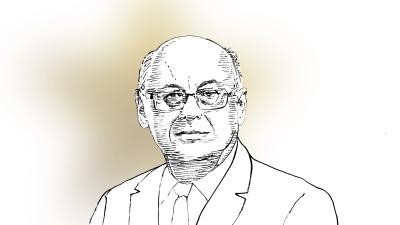

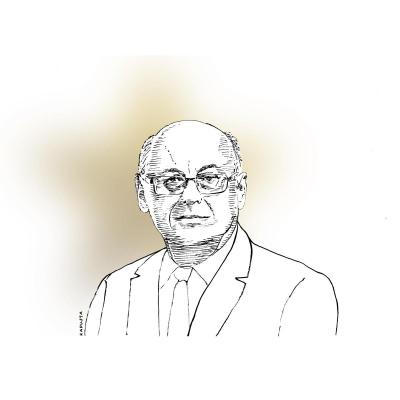
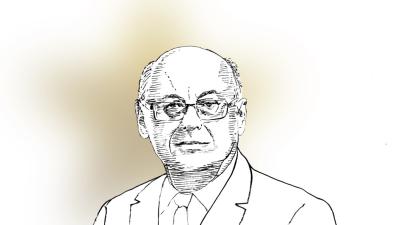

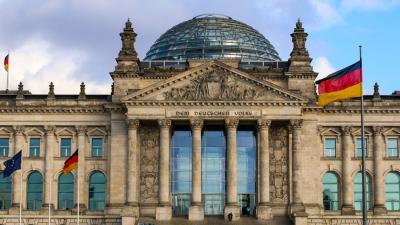

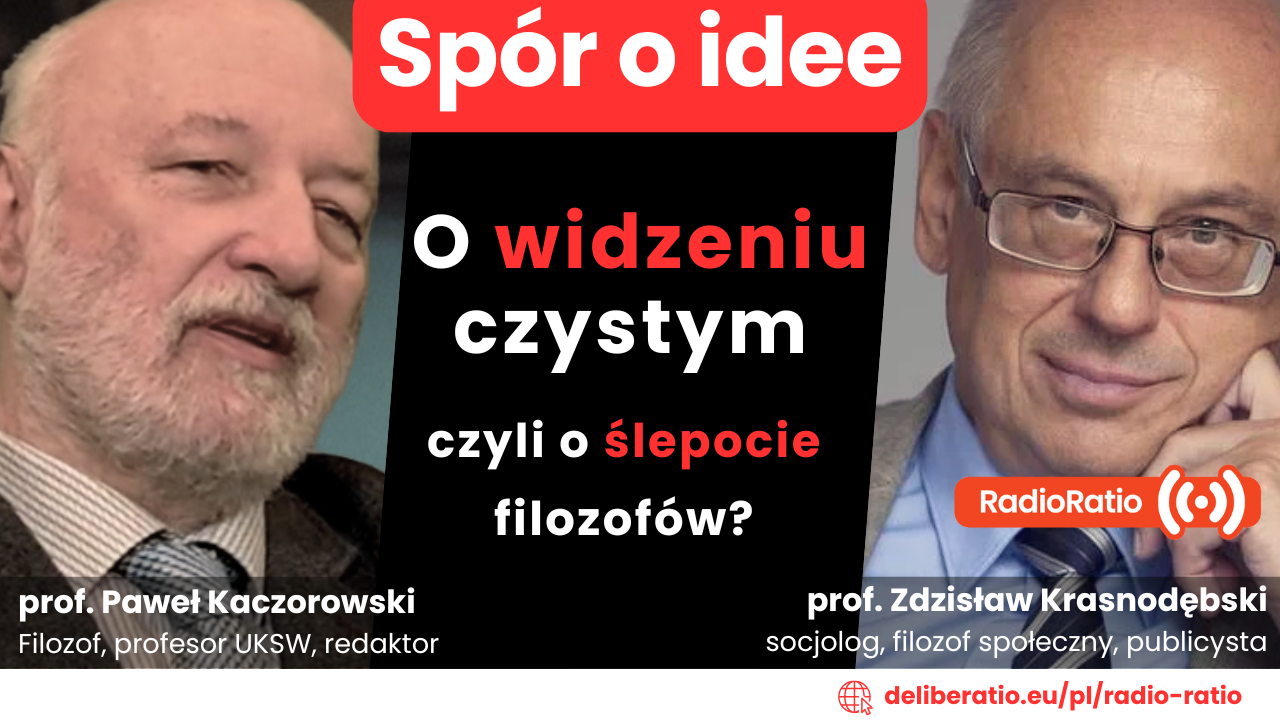
Comments (0)